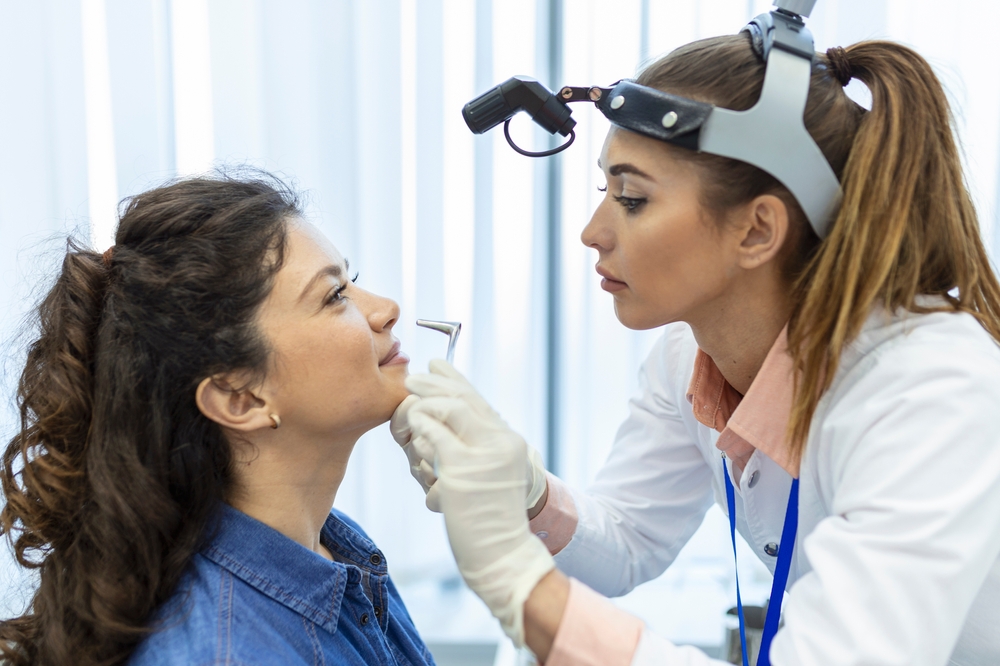No one’s really sure what causes Meniere’s disease. But the impacts are hard to ignore. Ringing in the ears, dizziness, vertigo, and hearing loss are all common symptoms of this condition. Symptoms of Meniere’s disease seem to stem from a buildup of fluid in the inner ear–but researchers aren’t really sure what causes that buildup in the first place.
So the question is: how can you treat something that doesn’t seem to have an identifiable cause? The answer is, well, complicated.
What exactly is Meniere’s disease?
Meniere’s disease is a chronic condition that impacts the inner ear. For many patients, Meniere’s disease is progressive, meaning symptoms will grow worse over time. Those symptoms may include:
Unpredictable spells of vertigo: Unfortunately, there’s no way to tell when these episodes of vertigo may strike or how long they could last.
Tinnitus: The severity of this tinnitus may ebb and flow, but it’s not uncommon for those with Meniere’s Disease to experience ringing in their ears.
Fullness in the ear: This symptom is medically known as aural fullness–the sensation of pressure in your ear.
Hearing loss: Over time, Meniere’s disease can lead to a loss of hearing.
If you experience these symptoms, it’s essential to receive an accurate diagnosis. For many people with Meniere’s, symptoms are intermittent. But over time, symptoms may become more consistent and noticeable.
How is Meniere’s disease treated?
Meniere’s disease is a progressive and chronic condition for which there is no known cure. But that doesn’t mean there aren’t any treatments.
Some of the most common treatments include the following:
- Medications: In some instances, your physician will be able to prescribe anti-dizziness and anti-nausea medications. This can help when those particular symptoms manifest. For example, medications designed to help with motion sickness could help you feel less dizzy when an episode of vertigo occurs.
- Diuretic: Another form of medication that your physician may prescribe is a diuretic. The idea is that reducing the retention of fluids could help minimize pressure on your inner ear. This is a long-term medication that you’d take rather than one to minimize acute symptoms.
- Rehabilitation: There are rehabilitation and physical therapy techniques that can help you maintain balance when Meniere’s disease is acting up. If you’re constantly dizzy or experiencing vertigo, this approach may be warranted.
- Positive pressure therapy: There’s a non-invasive approach employed when Meniere’s is particularly difficult to treat. It’s called positive pressure therapy. This treatment involves exposing the inner ear to positive pressure in order to limit fluid buildup. While positive pressure therapy is promising, the long-term benefits of this approach have yet to be borne out by peer-reviewed research.
- Hearing aid: As Meniere’s disease progresses and your hearing loss grows worse, you may want to try a hearing aid. Generally, a hearing aid won’t necessarily slow the progress of your hearing loss. But it can help keep you socially active and provide other benefits, including a boost to your mental health. Hearing aids can also help you manage the symptoms of tinnitus in several ways–most prominently by giving your ears other sounds to focus on.
- Steroid shots: Injections of certain types of steroids can temporarily help relieve some Meniere’s symptoms, especially when it comes to vertigo.
- Surgery: In some cases, surgery is used to address Meniere’s. However, these surgical procedures will generally only impact the vertigo side of symptoms. Other Meniere’s symptoms will remain.
Find the right treatment for you
If you think you have Meniere’s disease, you should get evaluated. Treatments for Meniere’s can sometimes slow the progress of your condition. More often, however, they minimize the impact that Meniere’s will have on your daily life.



